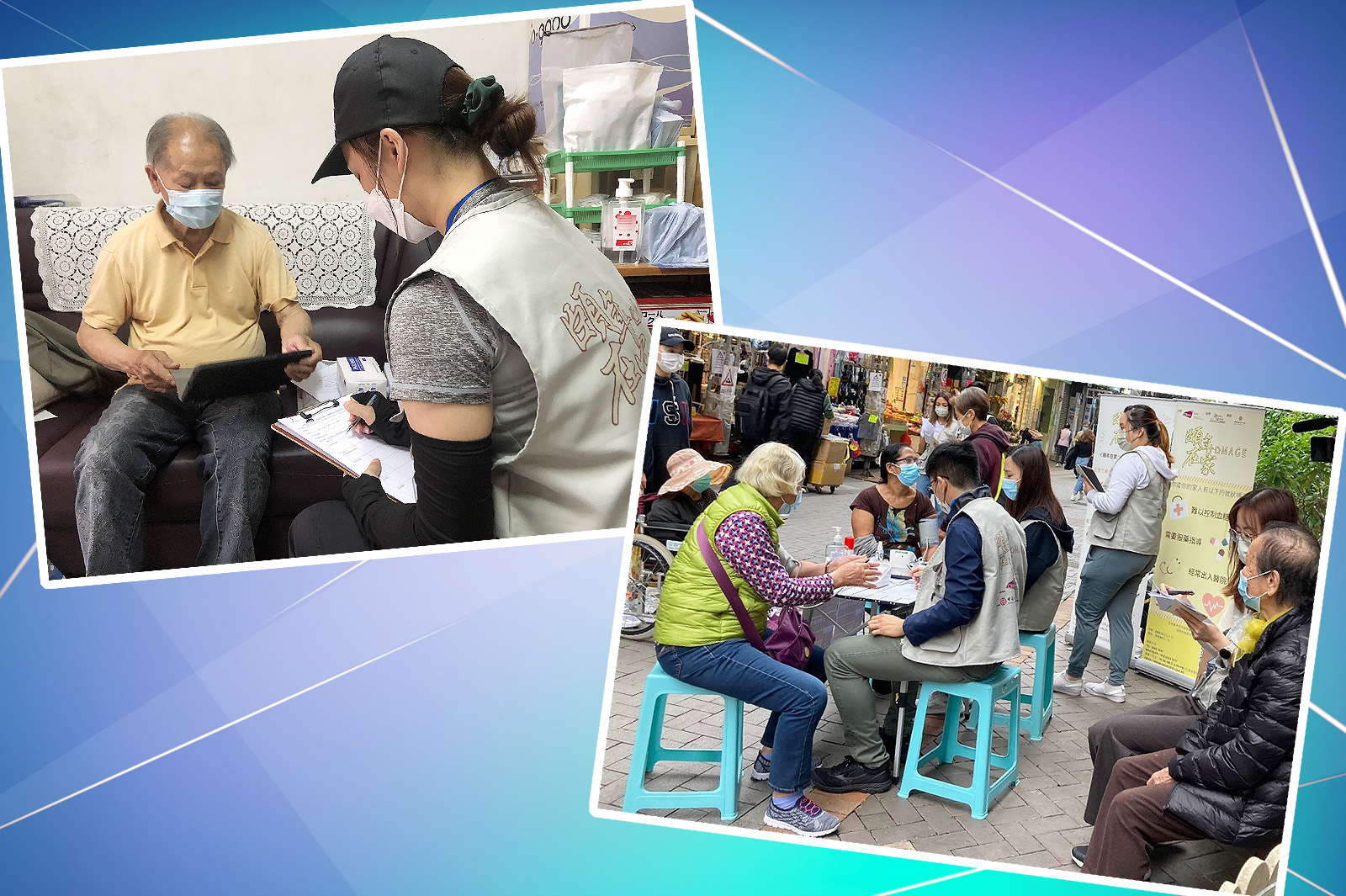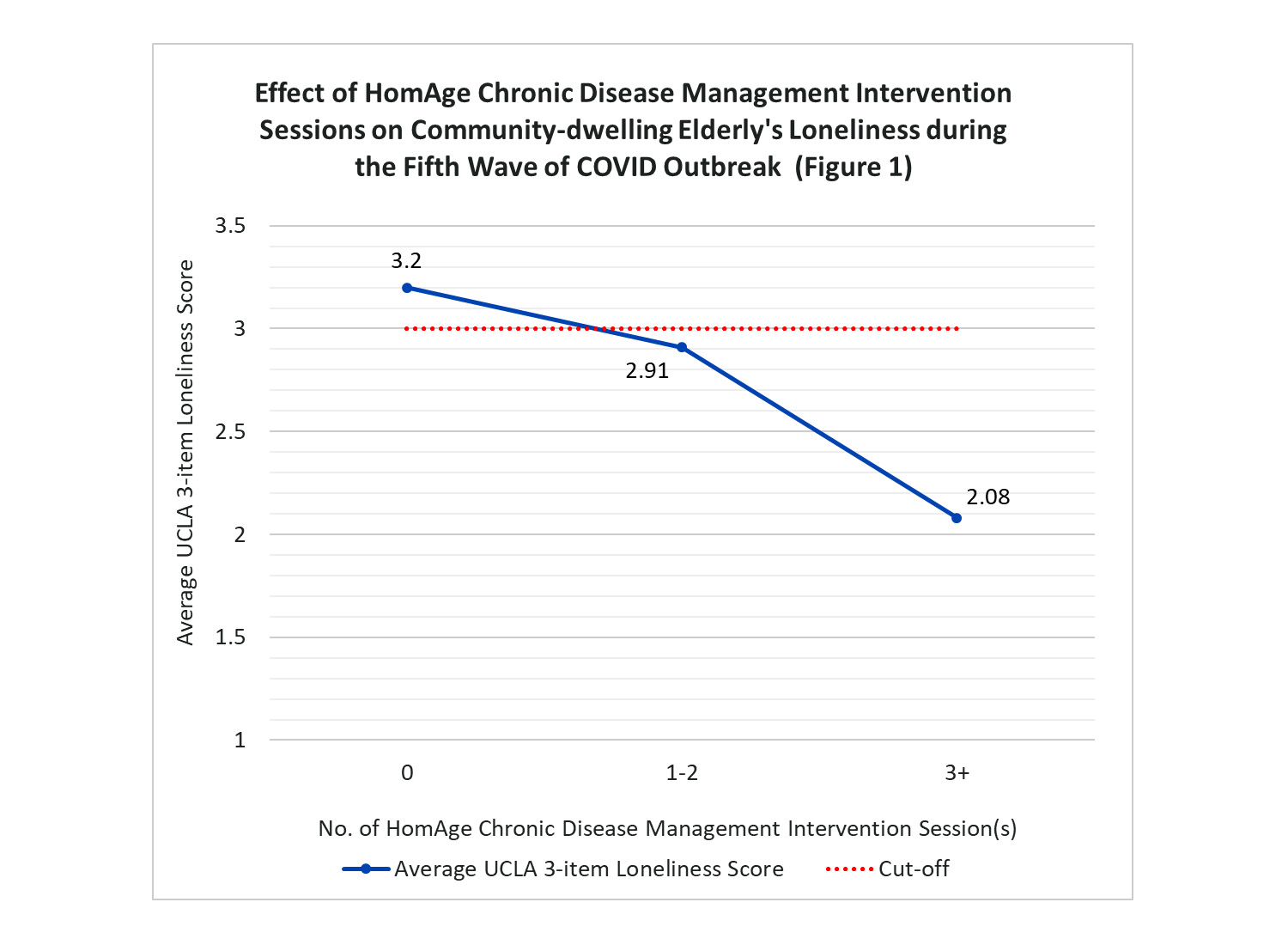Loneliness among senior citizens spiked during 5th COVID outbreak

A home-based intervention programme for managing chronic diseases that has been designed by a team from City University of Hong Kong (CityU) with input from nurses, social workers and a dietitian can reduce older people’s sense of loneliness, which has worsened significantly during the fifth wave of the COVID-19 pandemic due to prolonged isolation and lack of community support, according to a CityU telesurvey.
Senior citizens were advised to stay home as much as possible during the fifth wave of the pandemic because they are the most susceptible to the novel coronavirus and run a higher risk of developing severe complications. However, the problem can lead to reduced social interaction, which is often associated with greater degrees of loneliness and depression.
The survey, which was supervised by Dr Dannii Yeung Yuen-lan, Associate Professor in the Department of Social and Behavioural Sciences, and Ms Hera Leung Hiu-wah, Project Manager in the Department of Management Sciences, aimed to understand how COVID-19 impacts self-reported cases of loneliness, and identify potential contributing factors and assess the impact on health. Between February and March 2022, the CityU team interviewed 355 elderly people living in Kwun Tong, among whom 222 had completed a similar survey before the fifth wave of COVID-19, the results of which could show longitudinal changes in loneliness scores and thus provide empirical evidence for the effectiveness of the HomAge Chronic Disease Management Intervention Programme.
An adapted Chinese version of the UCLA 3-item Loneliness Scale was used in the telesurvey. A score of 3 or above indicates mild or more significant self-reported loneliness and depressive symptoms. Among the 222 participants who completed these items before and during the 5th wave, 15.3% showed a sharp increase in loneliness. They went from a score of 2 or below for the pre-fifth wave period to 3 or above during the fifth wave, causing them to fall into the at-risk group with mild or moderate levels of loneliness.
The telesurvey also revealed that those aged 80 years old or above with no smartphone were more likely to experience severe loneliness. Now that a great deal of communication is online, they can feel excluded from social and medical services.

However, the Programme has helped reduce loneliness by encouraging home visits, health coaching and case management, and connecting with different community resources. Specifically, compared to those who have not yet received any intervention, the average loneliness score dropped from 3.2 to 2.91 among participants who had received one to two sessions of intervention. The reduction in loneliness levels was much more substantial (mean = 2.08) among participants who had received three or more intervention sessions (see Figure 1).
The telesurvey also touched on medication adherence and awareness of the “Drug Refills Arrangement” that the Hospital Authority (HA) offers to senior citizens who are unable to access outpatient services. Surprisingly, among all 355 respondents, only 20% had heard of this service, and only 10.7% had used it, which suggests more effective communications are required.
In October 2020, Bank of China (Hong Kong) Limited donated to the project “HomAge: Home-based Aging for Transformative Community Care” led by Professor Frank Chen Youhua, Chair Professor in the Department of Management Sciences, and Professor Stephen Shum Wan-hang, Associate Dean in the College of Business. The aim is to implement “aging in place” in Hong Kong through sustainable and affordable healthcare services, thus reducing unnecessary hospitalisation and postponing moves to care homes.
